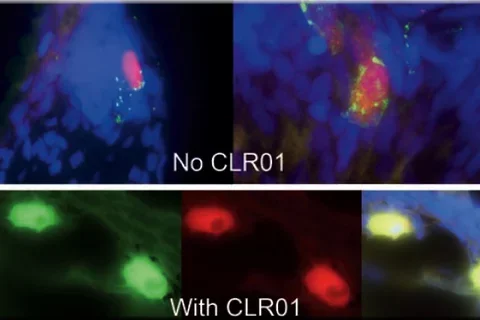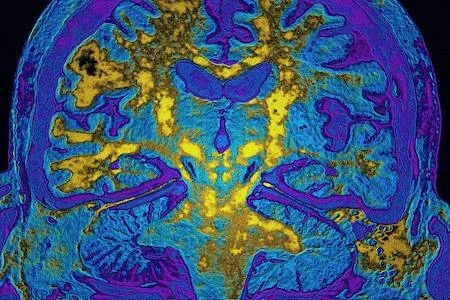Parkinson’s Disease stopped in animal model
Molecular ‘tweezers’ break up toxic aggregations of proteins

Millions of people suffer from Parkinson’s disease, a disorder of the nervous system that affects movement and worsens over time. As the world’s population ages, it’s estimated that the number of people with the disease will rise sharply. Yet despite several effective therapies that treat Parkinson’s symptoms, nothing slows its progression.
While it’s not known what exactly causes the disease, evidence points to one particular culprit: a protein called α-synuclein. The protein, which has been found to be common to all patients with Parkinson’s, is thought to be a pathway to the disease when it binds together in “clumps,” or aggregates, and becomes toxic, killing the brain’s neurons.
Now, scientists at UCLA have found a way to prevent these clumps from forming, prevent their toxicity and even break up existing aggregates.
Read the full story at UCLA Health



